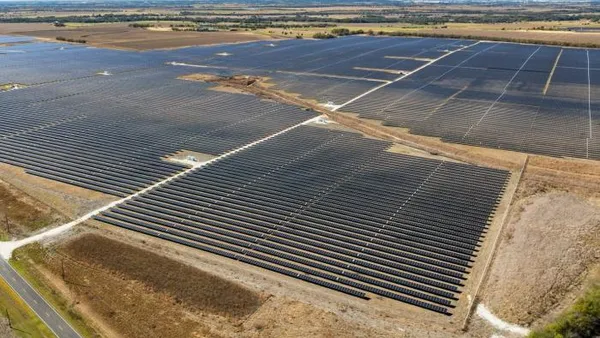Dive Brief:
- Marc Sacks, a Department of Justice attorney arguing on behalf of the U.S. Environmental Protection Agency, sought distance from EPA Administrator Lee Zeldin’s accusations of fraud during a Wednesday hearing in a lawsuit filed by Greenhouse Gas Reduction Fund grant recipients whose funding has been frozen.
- Sacks argued for EPA’s right to freeze the funding based on a clause in the August 2024 grant agreement which allowed the agency to terminate a contract based on grantee compliance with EPA’s general terms and conditions, saying a dispute exists over whether or not that gave EPA “the right at that point in time to terminate for agency priorities.”
- District Judge Tanya Chutkan noted that this was a shift away from EPA’s public argument, as its termination letter to the grantees had alleged “waste, fraud, and abuse … That you were launching investigations, and you know there was malfeasance. You seem to be abandoning that position now.”
Dive Insight:
Zeldin has commented several times on the freeze since it began Feb. 16, frequently alleging grantee fraud and stating in a March 5 release that “$20 billion was given to just eight pass-through nongovernmental entities in an effort riddled with self-dealing, conflicts of interest, and an extreme lack of qualifications.”
In a March 2 letter to Acting Inspector General Nicole Murley, Acting Deputy EPA Administrator Chad McIntosh said that fund holder Citibank had voluntarily paused further disbursements of GGRF funding, then cited “reckless financial management, blatant conflicts of interest, astonishing sums of tax dollars awarded to unqualified recipients, and severe deficiencies in regulatory oversight under the prior administration.”
McIntosh also cited “an unusual and apparently improper structure of the agreements governing the administration of the GGRF altogether excluded EPA from being a party to Account Control Agreements (ACAs) with subrecipients.”
Sacks argued from that point, saying that the termination letter “addresses, in a number of ways, the idea of lack of account controls, a need for better regulation and control over the money at issue here and agency priorities.”
“I don't believe the termination letter accuses the plaintiff of waste, fraud and abuse. It uses that term,” Sacks said. “I don't think it's a statement that the grant is being terminated because they have committed –”
Chutkan interrupted to note that the waste, fraud and abuse accusations have “been a statement of EPA officials all over the public sphere.”
Sacks said he understood that “a lot of attention” has been paid to EPA’s statements, to which the judge responded that Zeldin, as administrator, speaks for the agency.
“I certainly understand that, Your Honor. At the same time, I think EPA tried to lay out in the termination letter, and in [EPA chief of staff Eric] Amidon’s declarations, the basis for termination,” Sacks said.
He argued that changes were made in December by the outgoing Biden administration to “no longer [allow] EPA” to terminate grants based on agency priorities, which led the Trump administration to terminate the grants out of “concerns about their oversight abilities.”
Sacks cited Lincoln v. Vigil, in which the Supreme Court held that the “allocation of funds from a lump-sum appropriation is an administrative decision traditionally regarded as committed to agency discretion.”
Chutkan took issue with this argument, saying that the frozen funding in this case had already been granted to the plaintiffs and subgrantees and was “simply to be distributed to them through their Citibank account.”
The Wednesday hearing concerned a motion for a preliminary injunction filed by the plaintiffs, which asked the court to intervene in the freeze and allow the grantees access to their funds held at Citibank. Chutkan issued an order on March 18 that blocked the freeze, preventing Citibank from moving the funds out of the grantees’ accounts, but they remain blocked from accessing those funds.
Vincent Levy, an attorney representing the Coalition for Green Capital — a $5 billion grant recipient and “green bank” — urged Chutkan to rule in their favor on the injunction “just put us to the status quo and to where we were on February 16, before what we view as an unlawful freeze.”
“Because I think we still have irreparable harm, even if the lights are on, if we can't do anything,” Levy said. “We're a financial institution, we give loans, we monitor loans, invest in projects, and if we're not doing that and we're just sitting in our office, we're still being harmed. We can't carry out our mission and what we're supposed to be doing,” he said, alleging reputational harm if the nonprofit “can't be trusted to dole out money.”
Chutkan concluded the hearing by saying that she will try to rule “expeditiously” on the injunction.












